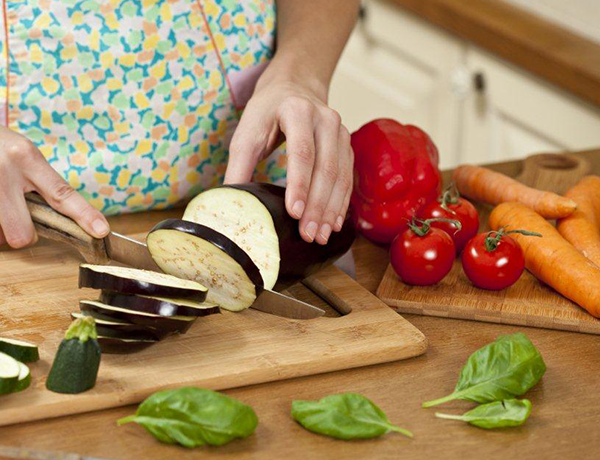 When a loved one has dementia, caregiving can mean facing a variety of daily challenges. The effects of the disease on cognitive function and memory can make some people newly irritable, for example, or less invested in keeping up personal hygiene. Nutrition and hydration are two important aspects of daily care.
When a loved one has dementia, caregiving can mean facing a variety of daily challenges. The effects of the disease on cognitive function and memory can make some people newly irritable, for example, or less invested in keeping up personal hygiene. Nutrition and hydration are two important aspects of daily care.
Making sure your loved one consumes enough food and water each day is essential to keeping him or her strong, energized, and healthy. Without support, a person with dementia could lose a troubling amount of weight or become dehydrated, both of which can lead to or contribute to hospitalizations. However, there are ways you can help: a combination of increased awareness and an informed approach can form the basis of healthier habits.
Recognize possible causes
Is your mealtime encouragement being met with resistance? There are many possible reasons why this is so, and the answer may be something you haven’t thought of yet. Understanding the causes of your loved one’s changing behavior can help you examine your own approach and discover why certain tactics may not be working the way you expected.
Cognitive barriers: One major obstacle to regular diet for patients with dementia is the reduced ability to recall whether they have eaten or drank recently. Cues for hunger and thirst are similarly dampened and disrupted. If questioned, individuals with dementia may reply that yes they have eaten, or no they’re not hungry, regardless of what their bodies are trying to tell them. Short-term memory complications also make it more challenging — and exhausting — to prepare healthy meals, and the food on the plate may not be recognizable, which could lead to resistance to trying ‘new’ things.
Physical barriers: Beyond these communication breakdowns, individuals with dementia may be experiencing more immediate difficulties with eating and drinking that they are having trouble expressing. They may be struggling with reduced appetite (which could be brought on or even enhanced by certain medications). Their senses of smell and taste become diminished, making food seem less appetizing. Discomfort in the throat or mouth, possibly from ill-fitting dentures, could be the culprit. Or the effects of constipation might make them disagreeable about taking in more food.
Find winning strategies for better eating
Every patient with dementia experiences different symptoms in different ways. It may take some trial and error until you find a routine that gets positive results for your loved one; the trick is to stay flexible and attentive to what isn’t working (and why not). Here are some approaches to get you started:
- Encourage more activity in your loved one’s day to help boost appetite.
- Consider less conventional routines, such as providing smaller meals and snacks throughout the day.
- Avoid clutter and confusion at the table: plain white plates, no decorations, and just one or two foods at a time can help to minimize distractions.
- Use persistent reminders, not only to take a bite, but also about what the food is.
- Adapt to your loved one’s shifting tastes by trying different or stronger flavors, or by sweetening foods with sugar or honey.
- Place ready-to-eat snacks where your loved one can easily see and consume them.
Hydration: every little bit counts
Unless your loved one is under doctor’s orders to restrict fluid intake, chances are that increasing the amount of water consumed will help more than it hurts. Whatever progress you can help your loved one make toward the daily recommendation of 48 to 64 ounces of water (that is, 6 to 8 cups) will have a positive health impact. Try these tips for increasing fluid intake throughout the day:
- Keep a water glass within your loved one’s line of sight and reach — the cup may be clear, to show what’s inside, or a bright color, for better visibility.
- Just like with eating, reminding your loved one to take a drink may have better results than asking whether he or she is thirsty.
- Because a big, full glass may seem intimidating, try having your loved one drink a swig of water from a small glass several times over the course of the day or visit.
- Offer a variety of beverages at different times of day. Although plain water is best, consuming more liquids by any means is preferable to dehydration.
If you take time to discover and stick with your loved one’s most successful eating and drinking habits, you’ll enjoy better short-term outcomes at mealtime as well as long-term reassurance that he or she can remain comfortably at home, in the best health possible.
{{cta(‘44893e99-97c2-42f8-936a-6798128c709b’)}}

